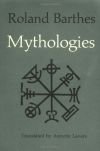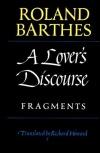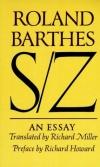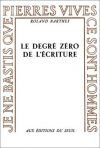
Mythologies is a 1957 book by Roland Barthes. It is a collection of essays taken from Les Lettres nouvelles, examining the tendency of contemporary social value systems to create modern myths. Barthes also looks at the semiology of the process of myth creation, updating Ferdinand de Saussure's system of sign analysis …

This personal, wide-ranging, and contemplative volume--and the last book Barthes published--finds the author applying his influential perceptiveness and associative insight to the subject of photography. To this end, several black-and-white photos (by the likes of Avedon, Clifford, Hine, Mapplethorpe, Nadar, Van Der …

A Lover’s Discourse, at its 1978 publication, was revolutionary: Roland Barthes made unprecedented use of the tools of structuralism to explore the whimsical phenomenon of love. Rich with references ranging from Goethe’s Werther to Winnicott, from Plato to Proust, from Baudelaire to Schubert, A Lover’s Discourse …

S/Z, published in 1970, is Roland Barthes's structuralist analysis of "Sarrasine", the short story by Honoré de Balzac. Barthes methodically moves through the text of the story, denoting where and how different codes of meaning function. Barthes's study has had a major impact on literary criticism and is historically …

With this book, Barthes offers a broad-ranging meditation on the culture, society, art, literature, language, and iconography--in short, both the sign-oriented realities and fantasies--of Japan itself.

Writing Degree Zero is a book of literary criticism by Roland Barthes. First published in 1953, it was Barthes' first full-length book and was intended, as Barthes writes in the introduction, as "no more than an Introduction to what a History of Writing might be."

S/Z, published in 1970, is Roland Barthes's structuralist analysis of "Sarrasine", the short story by Honoré de Balzac. Barthes methodically moves through the text of the story, denoting where and how different codes of meaning function. Barthes's study has had a major impact on literary criticism and is historically …

 English
English Español
Español Deutsch
Deutsch


